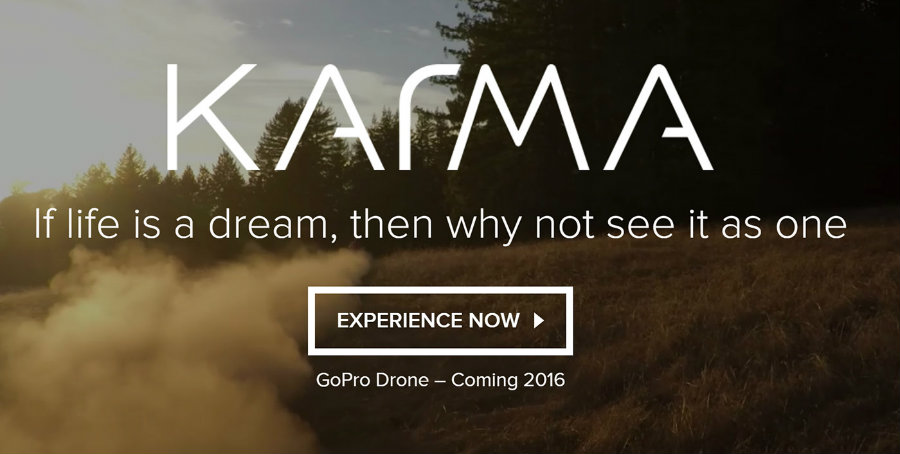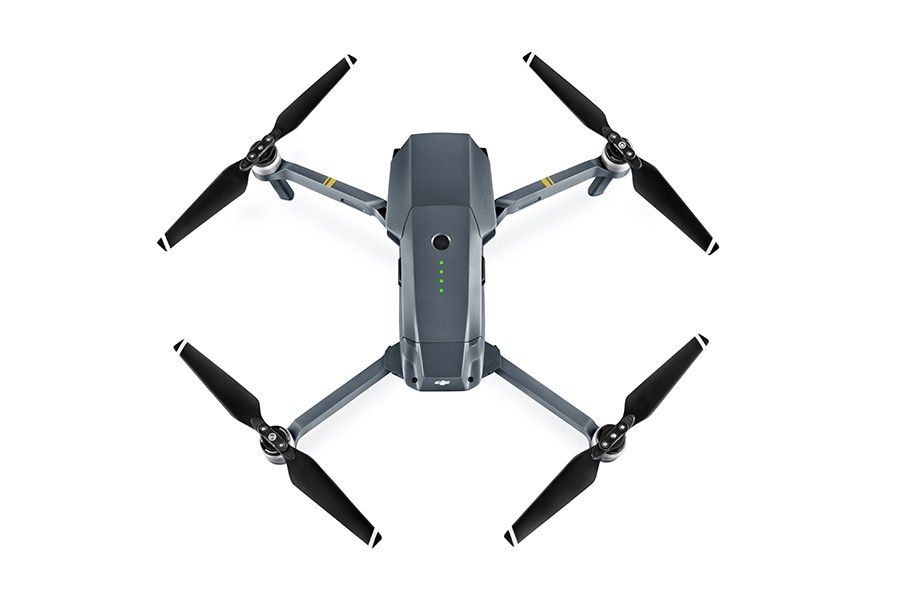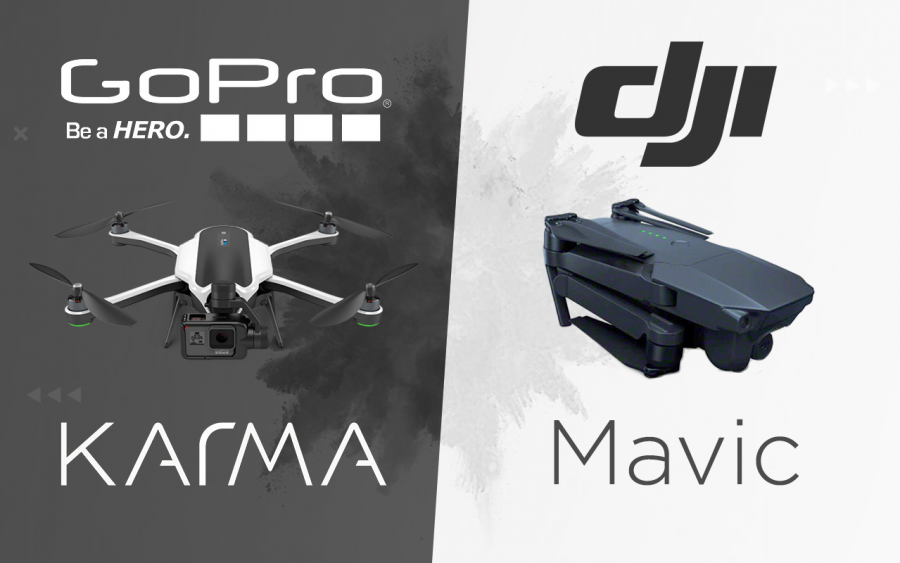The last couple of weeks have seen the release and shipping of the DJI Mavic Pro, and now the GoPro Karma drone is also up for sale. Both devices have advantages and disadvantages, but in the end, it is up to users to decide which of them is best.
The launch of the GoPro Karma follows a hiccup in the rollout of its DJI competitor. The Mavic Pro started shipping on Friday, days after its release which angered a group of impatient customers.
The Karma drone was originally a joint venture between GoPro and DJI, but the companies parted ways in 2015. While GoPro unveiled the Karma first, the Mavic Pro beat it to market launch for a little over a week.


DJI Mavic Pro vs. GoPro Karma: Specs and design
Since the same original idea arguably inspires the two drones, it comes as no surprise that both share similar traits. The GoPro Karma and the DJI Mavic Pro are both portable consumer drones with cutting-edge specs.
However, the DJI Mavic Pro is more compact than the GoPro Karma. At 1.62 lbs it is over half a pound lighter than the Karma (2.22lbs). Moreover, it beats the GoPro aerial device in overall flying performance.
The Karma can fly at max speeds and heights of 35 mph and 14,500 ft. In contrast, the Mavic Pro reaches nearly 16,500 ft altitudes at 40 mph. DJI more than doubles the maximum flight distance of the GoPro device, registering 4.3 miles against 1.86.


The Chinese tech also stands out in actual flight time and portability. The Mavic Pro can fly for 27 minutes while the Karma can only do 20. Furthermore, DJI made its folded device nearly half as compact as the GoPro vehicle.
The Mavic Pro is 7.8 inches long and 3.3 wide while the Karma is 14.4 inches long and 8.8 inches wide. Both drones are approximately 3.5 inches high.
DJI Mavic Pro vs. GoPro Karma: Camera and Accessories
While the DJI Mavic Pro includes the camera on the drone, the GoPro Karma offers more options when it comes to capturing moments from above. Then again, performance-wise it seems like the Chinese have the upper hand.
DJI packs a 4K, 12 MP camera on the Mavic Pro. It has a 28 mm lens, and its image stabilization gimbal gives it the ability to roll rather than just going up and down like the Karma. On the other hand, GoPro offers the option to remove both the camera and the gimbal. The GoPro Karma is compatible with the Hero5 Black, Hero5 Session and the Hero 4.
Both the GoPro Karma and the DJI Mavic Pro come with built-in GPS and flight automation settings, but other than that the Chinese offer more features. The Mavic Pro can sense and avoid obstacles, follow targets, and hover indoors.
GoPro includes a gaming-like controller for the Karma drone, while DJI relies on smartphones and apps to control the Mavic’s flights. Both aerial devices are capable of live streaming footage.
DJ Mavic Pro vs. Go Pro Karma: Price and Availability
The DJI Mavic Pro starts at a lower $749 price for only the drone, but it gets increasingly expensive and even ends up surpassing the priciest Karma bundle. The Mavic Pro with a remote control goes for $999, while $1,299 gets users more batteries and a bag.
Users with a compatible GoPro Karma need to shell out only $799 for the drone. It comes with a controller and a bag to carry the whole device. The $999 and $1,099 come with the Hero5 Session and Hero5 Black respectively.
Both drones are readily available for purchase as of today, October 23. Users can get the GoPro Karma or DJI Mavic Pro from select retailers and online in the United States.


